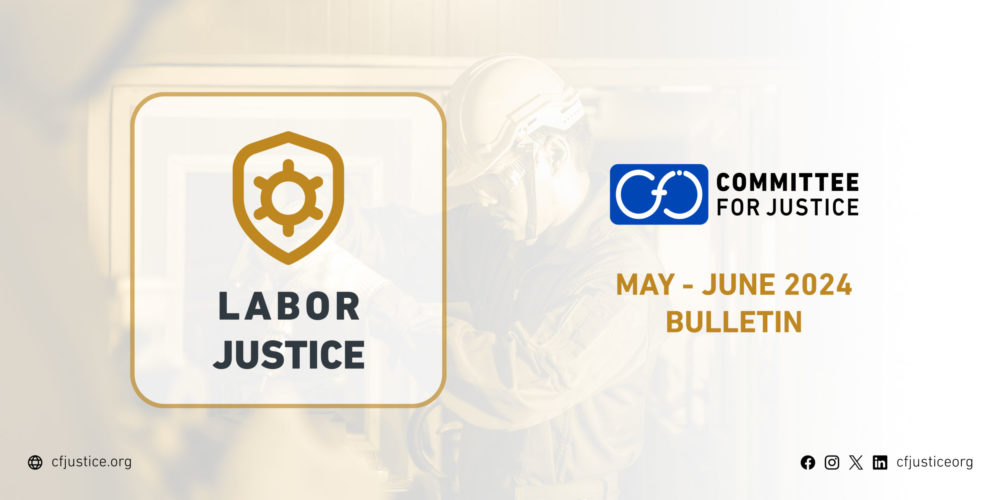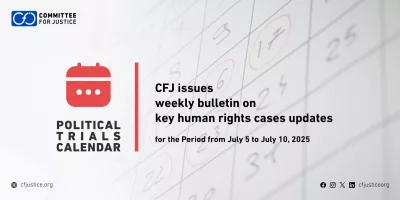The Committee for Justice has issued its Labor Justice Bulletin for the period (May and June 2024), which tracks political and economic developments in Egypt that have impacted labor justice in the country, as well as the most significant labor movements and violations against workers during the same period.
Economic, parliamentary, and union developments:
During the bulletin period, the government continued significant spending on construction projects in the New Administrative Capital, amidst a significant increase in the prices of medicine and bread. The gas shortage crisis caused fertilizer production companies to halt operations, resulting in a price increase of approximately 54%.
Additionally, in May 2024 the parliament enacted legislation allowing both foreign and Egyptian investors to manage and operate public hospitals, commonly referred to as the Public Hospital Leasing law, which faced public opposition and rejection from the Egyptian Medical Syndicate.
Regarding union activities, members of the Egyptian General Tourist Guides Syndicate won a final court ruling from the Supreme Administrative Court, requiring the interim committee overseeing the syndicate’s operations to hold elections. The interim committee has been managing the syndicate without elections for six years.
Labor strikes and protests:
CFJ documented continued protests by bill collectors at the Holding Company for Water and Wastewater nationwide, demanding the implementation of the minimum wage and permanent employment status. The problems facing employees at the partisan newspaper Al-Wafd remain unresolved, with a group of young journalists holding an open sit-in inside the headquarters, demanding that the newspaper issue them revised contracts so they can submit them to the Journalists Syndicate for inclusion in the current registration committee. This demand comes after the board chairman refused to sign the contracts.
In early June this year, workers of the “Monorail – Electric Suspended Train” project, affiliated with the Arab Contractors Company, went on strike to protest wage discrimination among workers without legal basis. Strikes also occurred among workers of the Technotex Garment Factory and Volga International leather footwear company.
A number of government employees who were arbitrarily dismissed under Law 73/2021 (Drug Use Law) organized a protest in front of the Parliament building on May 18, protesting their dismissal and demanding an amendment to the law, criticizing the randomness and inaccuracy of drug analysis reports and the misuse of this legal right as a pretext for dismissing employees.
Arbitrary Termination of Employment
On June 1, 2024, security forces arrested 13 employees in front of the Journalists’ Syndicate in Cairo while they were gathering to protest their arbitrary dismissal previously mentioned. They were released on June 2, 2024.
The Minya Water Company decided to dismiss five of its bill collectors and meter reading employees after they participated in a protest demanding permanent contracts. The human resources department of the Public Transport Authority issued an arbitrary decision on May 30 to dismiss five service workers, claiming poor job performance evaluations, violating the legal procedures required in such cases.
Labor fatalities and injuries incidents
In May 2024, CFJ documented a tragic accident that killed 16 girls and injured 9 others when a transport vehicle (microbus) sank in the Abi Galeb area of Giza after falling from a ferry.
In two separate incidents, two workers died during the months of May and June. One tragic incident involved an elevator malfunction at a factory in the industrial area of Gamasa, Dakahlia Governorate, where a worker was killed when the elevator fell on him. Another worker died after falling into a grain silo in 6th of October City, Giza Governorate. In the construction sector, three workers lost their lives when a building collapsed on them in Marsa Alam, in the southern Red Sea Governorate.






